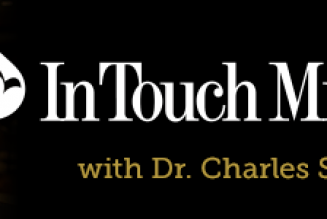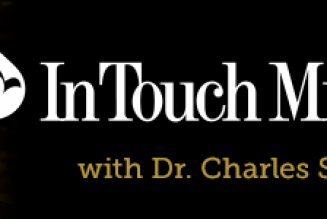
I’m preparing to interview the author of a book called Suburbianity (Harvest House, 2013). Byron Forrest Yawn is a Nashville-based pastor who has also written a helpful book for dads like me called What Every Man Wishes His Father Had Told Him. Byron’s writing style is vivid and engaging, so Suburbianity is an easy, enjoyable read. The book is also saturated with Scripture. (*Note to Harvest House: how about including a Scripture index in future editions?)
Byron powerfully addresses the concern that the ideals and values of suburbia have affected Christians in America far too deeply. He calls us to turn away from our instinctive belief that the primary aim of Christ‘s death was to bring us a comfortable, materially fulfilled life. In short, we need to fall at Jesus’ feet, not bow down to the idol of our best life now.
Here’s an excerpt of the book that’s been adapted from the introduction. Read it and recommend your questions for the interview. Also, check out a short video answer (below) from an earlier interview with Byron in which he answers: “What are the ways we corrupt the gospel message?”
Excerpt of Suburbianity by Byron Forrest Yawn (Harvest House Publishers, 2013)
The suburbs wreak havoc on the Christian faith. They affect every essential aspect of Christianity, including how I understand the gospel, read my Bible, and view the church…
This is not a rant against organized religion or American capitalism. The American dream has proved a legitimate pursuit for innumerable hardworking American Christians. I do not begrudge them. They are not wrong in their pursuit of happiness. Many have been able to maintain a sincerity of faith while flying the American flag on their porches.
Nothing is inherently wrong with being wealthy or successful. Wealth and success do present challenges to a life of faith, but to assume that rejecting capitalism will remedy the problems in America is superficial at best. I’m not the least bit ashamed that I personally benefit from the many blessings this country provides. (I’m not giving up my iPhone.)
Rather, the problem with being Christians in America is that we tend to confuse one for the other. When we cannot differentiate between that which is of Christ and that which is of Uncle Sam, we have no way of knowing which we are worshipping.
I expect that most suburban Christians are like me, struggling to tell the difference between what is generally American and what is actually Christian. Or what is vaguely spiritual and what is actually biblical. Or what is merely moral and what is specifically godly. This confusion is a central concern in this book. Making sense of it all is not as easy as you think.
Consider the following [true] statements.
· Morality is not a Christian worldview.
· Family values are not synonymous with Christianity.
· You will not have your best life in this existence.
· Wealth is not a sign of God’s favor.
· The church does not grow as a result of strategic planning.
· God did not save you because you have intrinsic value.
· Church is not where you go to escape the influence of the world.
· God does not love you more if you read your Bible and pray.
· Schooling choices are not signs of spirituality or good parenting.
· A Christian president will not save our country or our world.
· Being angry at sinners for being sinners is not a sufficient evangelism strategy.
I realize several items on this [abbreviated] list appear sacrilegious to many conservative Americans and many suburban Christians.
…Distinguishing between moral conservatism and biblical Christianity is nearly impossible for many who claim the name of Christ. As counterintuitive as my restatements may seem to many Christians, they are biblically accurate. That is, they can be defended from the Bible and are relatively easy to prove as true.
…I’m convinced a great deal of what we believe to be Christian in the suburbs actually isn’t. This is not a unique dilemma. We should not be surprised by the challenge presented by cultural assimilation. Christians in every culture struggle to make a proper separation between things cultural and Christian. America is no exception.
Within the American suburbs, countless unsuspecting and well-intended Christians mistake any number of suburban myths (including those I’ve listed) for Christianity.
On a weekly basis, if not daily, we miss the point about Jesus. We read books, hear sermons, listen to music, participate in Bible studies, and attend conferences that never get around to the particulars of real Christianity. The realities that distinguish Jesus from every other human who ever walked the earth and make Him more than an example to follow often go unnoticed. Much of what we assume to be Christian in our everyday experience in America has no real connection to Christianity at all. Our popular Christianity in the American suburbs is largely a synthetic version of the real thing.
The true gospel message has gone missing in the suburban church. Our citizenship in heaven has been misplaced by our citizenship in the States.
Byron Yawn is the senior pastor of Community Bible Church in Nashville, Tennessee. He is the author of What Every Man Wishes His Father Had Told Him, and Suburbianity: Can We Find Our Way Back to Biblical Christianity? (Harvest House) You can follow him on Twitter @ByronYawn.
What are the ways we corrupt the Gospel message? – Byron Yawn from christianitydotcom2 on GodTube.
NOTE: If you can’t see a video displayed in your browser, click here.
(Video posted at GodTube.com.)
Alex Crain is editor of Christianity.com and contributing editor for Crosswalk.com, BibleStudyTools.com, and Jesus.org. He also serves as pastor of worship ministries at Harvest Christian Fellowship in the Richmond, VA area. You can follow him on Twitter @Alex_Crain.










